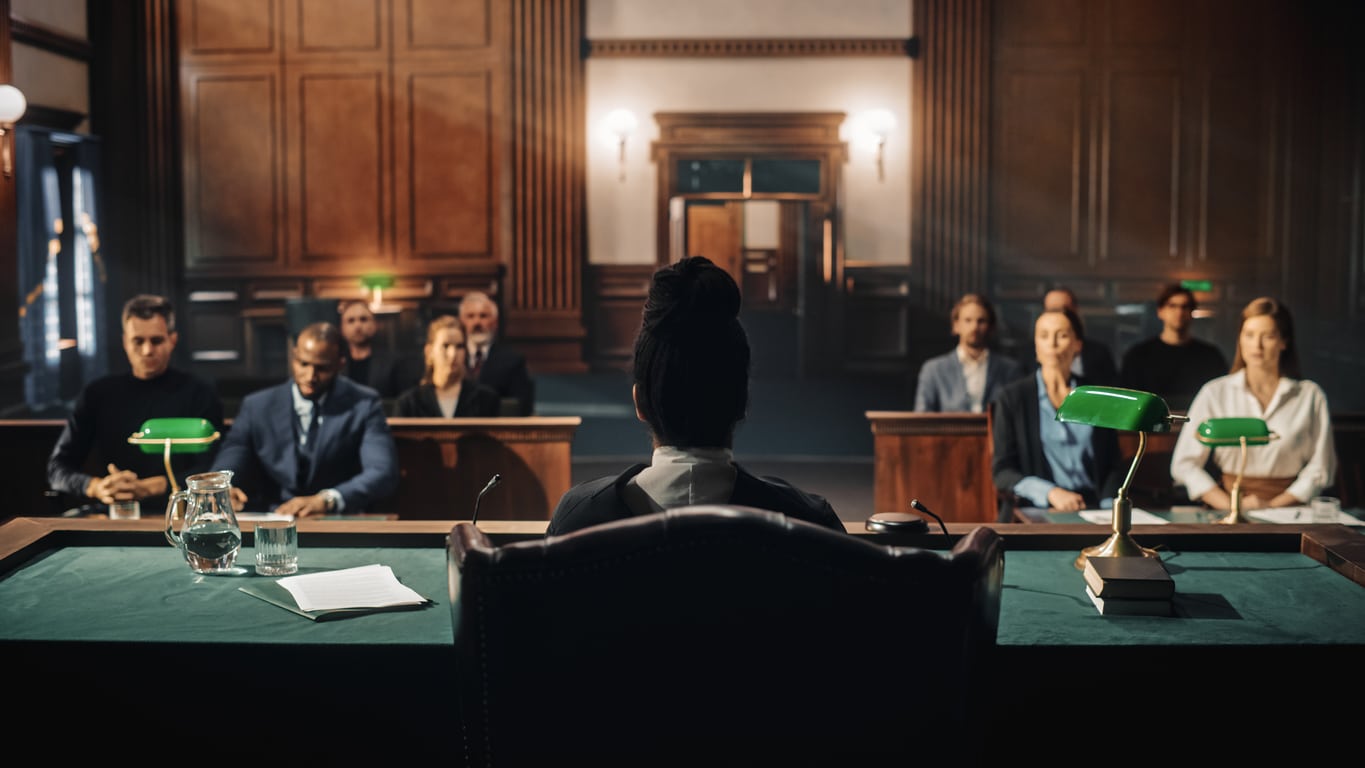

Updated on June 9, 2022
How do litigation privileges play out regarding an invalid abstract of judgment?
In the recent case of Weeden v. Hoffman, the Court of Appeal reversed a judgment entered in favor of defendants after the trial court granted the defendants’ anti-SLAPP motion with respect to plaintiffs’ complaint for quiet title, slander of title, and cancellation of instrument.
The dispute in Weeden arose out of real property that plaintiff Hoffman initially purchased with his then wife, Pamela Mitchell.
In 1992, Hoffman and Mitchell executed a deed of trust to secure a loan from Hoffman’s parents. When Hoffman’s parents died in 1996, he recorded a reconveyance of the deed of trust as the trustee of his parent’s trust.
Over ten years later, in 2009, Hoffman and Mitchell began divorce proceedings. In May 2014, Hoffman signed a deed of trust securing his one-half interest in the property in favor of his divorce attorney.
In addition, Hoffman attempted to reinstate the 1992 deed of trust by recording a rescission of the full reconveyance he had recorded in 1996.
Thereafter, Hoffman recorded something to reverse his rescission of the reconveyance, thereby once again removing the lien from the property.
Approximately a week later, Hoffman and Mitchell entered into a stipulated judgment involving the division assets, including the property.
Thereafter, Hoffman initiated a foreclosure of the property by recording a notice of default based on the 1992 deed of trust. In response, Mitchell filed an action for quiet title and obtained a temporary restraining order barring Hoffman from foreclosing.
Meanwhile, Hoffman’s divorce attorney foreclosed on his deed of trust as to Hoffman’s half interest. Ultimately, the trial court found that the 1992 deed of trust had been extinguished and quieted title in favor of Mitchell and the purchaser at the trustee’s sale initiated by Hoffman’s divorce attorney.
Two months later, Hoffman recorded the divorce judgment and recorded an erroneous abstract of judgment issued by the clerk. Thereafter, the Weedens purchased the property from Mitchell and the successors of the parties that purchased Hoffman’s interest at the trustee’s sale.
After the Weedens purchased the property, Hoffman sent a letter to the Weedens threatening a forced sale of the Weedens’ property pursuant to the judgment lien created by the abstract of judgment. As a result, the Weedens filed an action for quiet title, slander of title, and cancellation.
In response, Hoffman filed an anti-SLAPP motion arguing that the conduct underlying the Weedens’ claims against him was protected activity under the anti-SLAPP law and the Weedens were unable to demonstrate a probability of prevailing on their claims.
The trial court agreed with Hoffman that the conduct underlying each of the Weedens’ claim – Hoffman’s recording of a judgment – constituted protected activity.
The trial court further agreed with Hoffman that the Weedens could not demonstrate a probability of prevailing on any of their claims because the litigation privilege provided Hoffman with absolute immunity from liability.
The trial court therefore granted Hoffman’s anti-SLAPP motion, and, having struck the allegations for all three causes of action, entered judgment in favor of Hoffman. The Weedens appealed.
The Court of Appeal reversed in part and affirmed in part. Specifically, the Court of Appeal concluded the Weedens’ claims arose from protected activity, and the trial court therefore properly shifted the burden to the Weedens to demonstrate a probability of prevailing on their claims.
However, because the litigation privilege only shields a defendant from liability for tort damages that are based on litigation-related communications, it did not apply to bar the Weedens’ non-tort claims for quiet title and cancellation of instrument.
As the Court of Appeal explained, the quiet title and cancellation of instrument causes of action seek to ascertain the interests of the parties with respect to the parcel of real property and to determine the validity of the instrument.
Neither of these claims trigger tort based damages, especially when such an outcome would leave purchasers without any remedy to clear title when an invalid lien is recorded.
Thus, the litigation privilege did not shield Hoffman from these claims.
Additionally, the Court of Appeal found that Weedens sufficiently demonstrated a probability of prevailing on the merits because the abstract of judgment did not accurately reflect the terms of the judgment entered in the divorce proceeding.
Thus, the abstract was invalid. Based on the foregoing, the Court of Appeal reversed the judgment as to the quiet title and cancellation causes of action and remanded the matter for further proceedings in the trial court.
Schorr Law, APC has experience litigating real property disputes involving invalid abstract of judgment matters, liens and other quiet title issues.
To see if you qualify for a free 30-minute consultation regarding your matter, please contact us by phone, email, or send us a message through our contact form. We also serve other nearby areas in california such as riverside, Ventura county, Kern County and more.
Check out our recent articles –